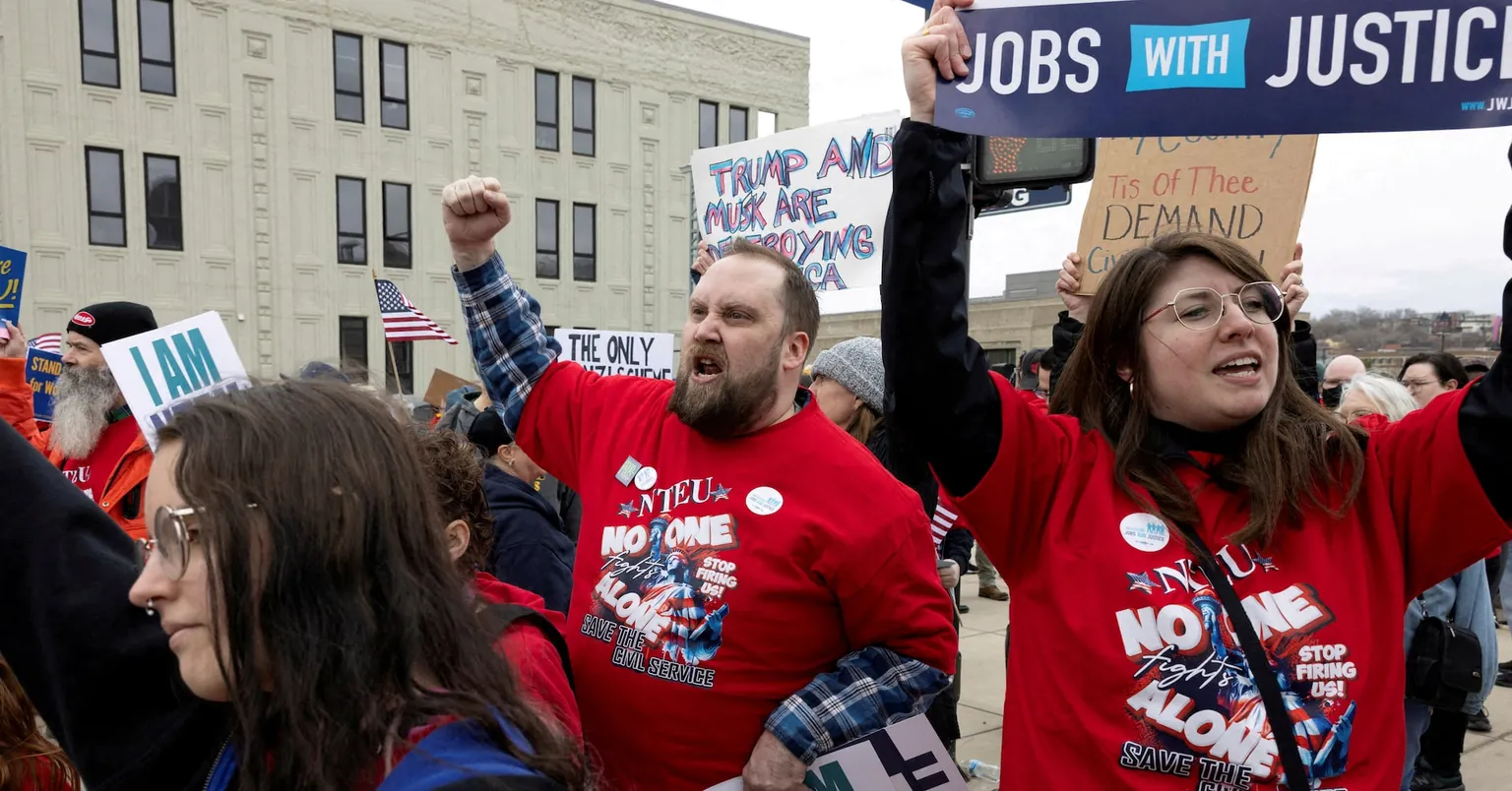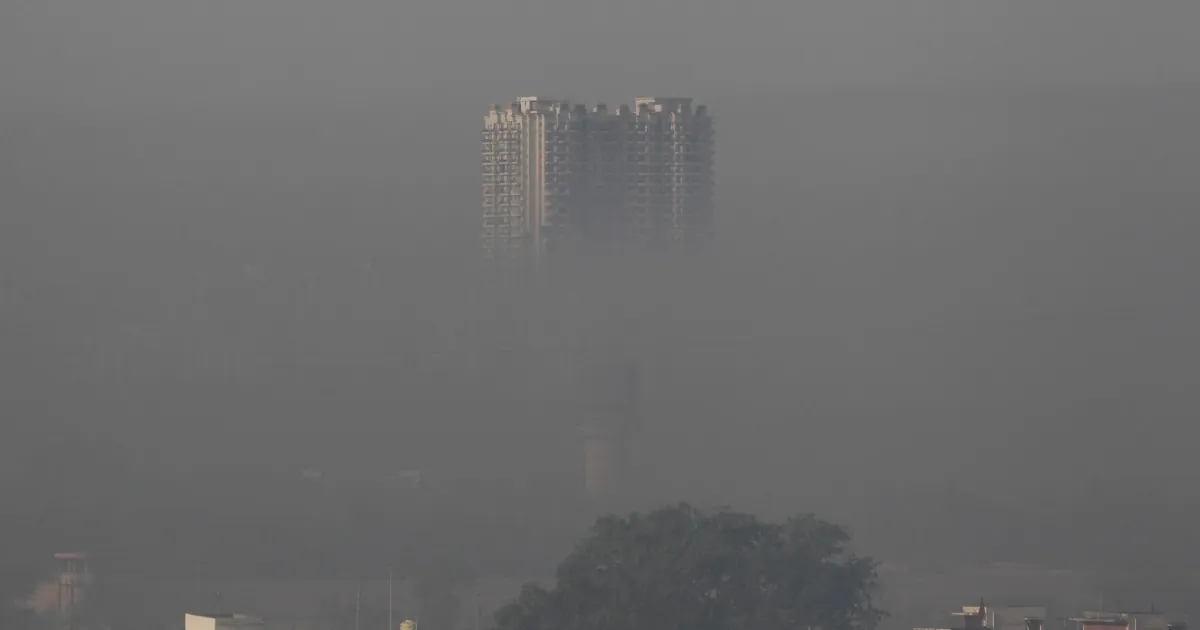It said 75,000 took the first of two buyout offers but has not said how many took a second buyout offer last month.
Reynolds chose not to take the first buyout offer in January, deciding to tough things out.
Speaking on condition of anonymity, for fear of having the buyout offer rescinded, the worker said the stress led him to stay up later, drink more and exercise less.
Dozens of lawsuits have challenged Trump administration efforts to fire federal workers.
The administration is appealing the ruling, which said Trump can only restructure federal agencies with authorization from Congress.
Reuters, Washington, May 20: Tens of thousands of U.S. S. According to unions, governance experts, and government employees themselves, government workers have opted to quit rather than suffer through what many see as a torturous wait for the Trump administration to fulfill its threats to fire them.
Upon assuming office, President Donald Trump issued an executive order to drastically reduce the size and expense of government. The biggest agencies have not yet implemented mass layoffs four months later, and the courts have slowed the process.
Rather, buyouts and other incentives have been used to entice the majority of the approximately 260,000 civil servants who have left or will depart by the end of September. Some told Reuters that after receiving repeated warnings from Trump administration officials that they might lose their jobs in the upcoming round of layoffs, they could no longer handle the daily stress of waiting to be fired.
With the help of buyouts, early retirement offers, and threats of termination, Trump and tech billionaire Elon Musk’s Department of Government Efficiency have thus been able to reduce almost 12 percent of the 2 million federal civilian employees, according to a Reuters analysis of agency departures.
A request for comment for this story was not answered by the White House. Trump and Musk accuse the federal bureaucracy of being overburdened, ineffective, and plagued by fraud and waste.
An official count of the number of federal employees quitting has not yet been released by the White House. It stated that 75,000 accepted the first of two buyout offers, but it did not specify how many accepted the second offer last month. Most civil servants will not be required to work during the program’s full pay and benefits period, which ends on September 30.
Numerous agencies are targeted for significant layoffs, including the Department of Veterans Affairs, which will lose over 80,000 jobs, and the Department of Health and Human Services, which will lose 10,000.
Many government employees have talked about living in constant fear of losing their jobs since January. Staff members have received frequent emails from numerous agencies offering incentives to leave along with a warning that those who remain could lose their jobs.
They have also had to put up with claustrophobic offices following Trump’s directive for all remote workers to report back to work, as well as agency dysfunction brought on by a turnover of seasoned employees.
Many civil servants’ early defiance has been eroded by a series of actions by DOGE and Trump, according to Don Moynihan, a professor at the University of Michigan’s Ford School of Public Policy. As a result, they have left the company, avoiding the legal ramifications of firing them.
These consist of the initial buyout offer, which instructed employees to quit their “lower productivity” positions; Musk’s request that employees list five accomplishments from the previous week; and the assignment of tasks for which they were not qualified.
“These should not be regarded as voluntary resignations. “Many of these workers believe they were evicted,” Moynihan stated.
On April 30, Charlotte Reynolds, 58, accepted an early retirement offer and resigned from her position as a senior tax analyst at the Internal Revenue Service, which collects taxes.
Reynolds decided to wait it out and declined the initial buyout offer in January. She’d had enough by April.
“They said we weren’t useful or productive. I worked hard during my 33 years of service with the IRS. I felt terrible about it,” Reynolds remarked.
ANGER UNION.
Trump’s budget chief Russ Vought said that government employees needed to experience “trauma.” Everett Kelley, president of the American Federation of Government Employees, the largest federal workers’ union with 800,000 members, cited Vought’s remarks. “,”.
During a 2023 event at the Center for Renewing America, the think tank he founded, Vought stated, “We want them to not want to go to work when they wake up in the morning.”.
Kelley claimed that the president had given Elon Musk and his DOGE team the authority to persecute, disparage, and fabricate stories about federal workers and their jobs, as well as to fire tens of thousands of workers.
An inquiry was not immediately answered by Vought.
An employee of the Social Security Administration, which manages benefits for Americans with disabilities and the elderly, said he accepted the second buyout offer, partly due to the stress of not knowing what would happen to him every day.
Speaking on condition of anonymity, the employee claimed that stress caused him to stay up later, drink more, and exercise less out of concern that the buyout offer would be withdrawn.
“There were definitely moments when I felt defeated,” the employee stated. “It completely upended your world. “.”.
The Trump administration’s attempts to terminate federal employees have been contested in dozens of lawsuits.
In the most expansive decision to date, a federal judge in California ruled on May 9 that employees who had already lost their jobs must be reinstated and temporarily prohibited layoffs at 20 agencies, including the departments of Agriculture, Health and Human Services, Treasury, and Veterans Affairs.
The ruling, which stated that Trump could only reorganize federal agencies with congressional approval, is being appealed by the administration.
Trump may still implement mass layoffs at large agencies in the months to come, even though they haven’t happened yet. This is especially likely if appeals courts remove the legal restrictions on mass firings.
Editing by Ross Colvin and Howard Goller; additional reporting by Nathan Layne; reporting by Tim Reid.







